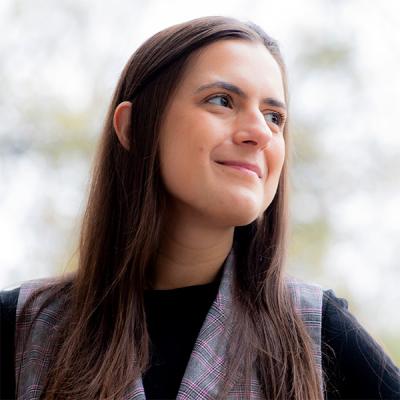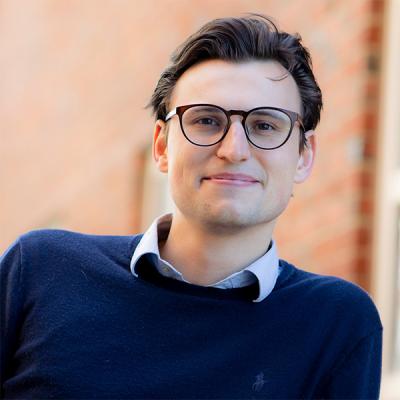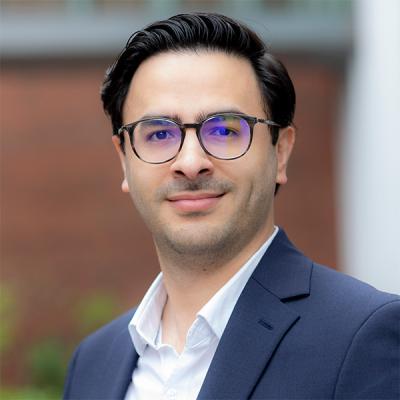Highlights of My Tuck MBA Experience
Business school is an opportunity to strengthen my finance skillset and expand my knowledge of infrastructure investments beyond frontier markets. I was an English and politics major at Washington & Lee University, and shortly after graduation I found myself working at a Mongolian bank—with no finance experience whatsoever. I taught myself some rudimentary modeling, and after spending over a year in Mongolia I continued to pursue my interest in infrastructure finance by joining CrossBoundary, a frontier markets investment firm with offices across Africa and in Washington, DC. I learned a lot at CrossBoundary. And I discovered that if I wanted to have a deeper understanding of the transactions I was advising on, I needed an MBA.
Even before applying, I was overwhelmed by the warmth and enthusiasm of the Tuck community. The alumni I spoke with were eager to offer advice, share their Tuck memories, and guide me through the application process. I wasn’t even a Tuckie yet, but if that was the experience I was getting just as I applied, it was easy to understand how powerful the network becomes once you’re actually in it.
Tuck’s location and size are central to that sense of community. I’ve engaged with my classmates and gotten to know them better than I would have in a larger environment. Our class has so many shared experiences that bind us together—between navigating the core curriculum, escaping out to the Dartmouth cabins, recruiting, and playing late-night hockey. Those constant touchpoints—particularly in Tuck’s consciously reflective environment in the Upper Valley—engender trust, allow for honest feedback, and provide opportunities to learn from one another and grow together.
When I arrived at Tuck, I didn’t know what path I wanted to pursue. All I knew was that I wanted to build my knowledge of infrastructure finance, but I wasn’t sure if that would be through banking, consulting, private equity, or asset management. I came in knowing that all of those were options and quickly decided that banking was the route I wanted to take.
It was stressful, but I honestly loved the recruiting process. I got to speak with and learn from investment bankers at almost every power & utilities group on Wall Street. And beyond that, I got to navigate the process alongside two dozen other T’19s—building friendships along the way as we shared rides to New York, supported one another through interviews, and attended company receptions. I ultimately chose Citi for my summer internship. The Tuckies who were there were incredibly supportive, introducing me to their colleagues on the Power team and helping me to secure an offer.
Having worked abroad and not knowing anything about U.S. utilities markets, the Revers Center for Energy was instrumental in enhancing my understanding of the U.S. power sector. I attended workshops on electricity wholesale markets, met energy investors and utilities executives visiting campus, and ultimately was better prepared to discuss the industry. One of my favorite courses, Corporate Valuation, is getting me ready for the job itself. It combines the accounting and corporate finance courses I took during the core curriculum—bringing them together in a workable, applicable way that will allow me to hit the ground running at Citi. I’m working through a valuations and models to formalize my understanding of finance, which is exactly what I wanted to do when I came to Tuck.
What I’m learning, I’m putting into practice. In 2017, Hanover committed to achieving 100 percent dependence on renewable energy for electricity by 2030. Under a project facilitated by the Revers Center, another classmate and I are working with the town to assess several potential sites for a community solar installation that would help the Town reach that goal. I’m also advancing my knowledge of renewable energy through my First-Year Project: our team is analyzing wholesale electricity prices and building forward curves for a leading solar developer.
I’ve also been able to do side projects and explore ideas I’m interested in. Two of my classmates and I submitted an infrastructure fund concept to the Kellogg-Morgan Stanley Sustainable Investing Challenge. Our proposal was for a series of community-based investment vehicles, which would raise and invest local capital into small-scale infrastructure Public-Private Partnerships—ultimately bundling these into asset-backed securities that would be attractive to secondary investors. In the process of developing our concept, we spoke with Tuckies working in public finance, directors of municipal infrastructure offices, and private equity investors.
We were selected as finalists, and Morgan Stanley flew us to London to present our concept. Although we didn’t win, the learning process from developing the proposal, the chance to present to leading impact investors in London, and the fun we had as a team all made it one of the most memorable experiences from my first year at Tuck.



